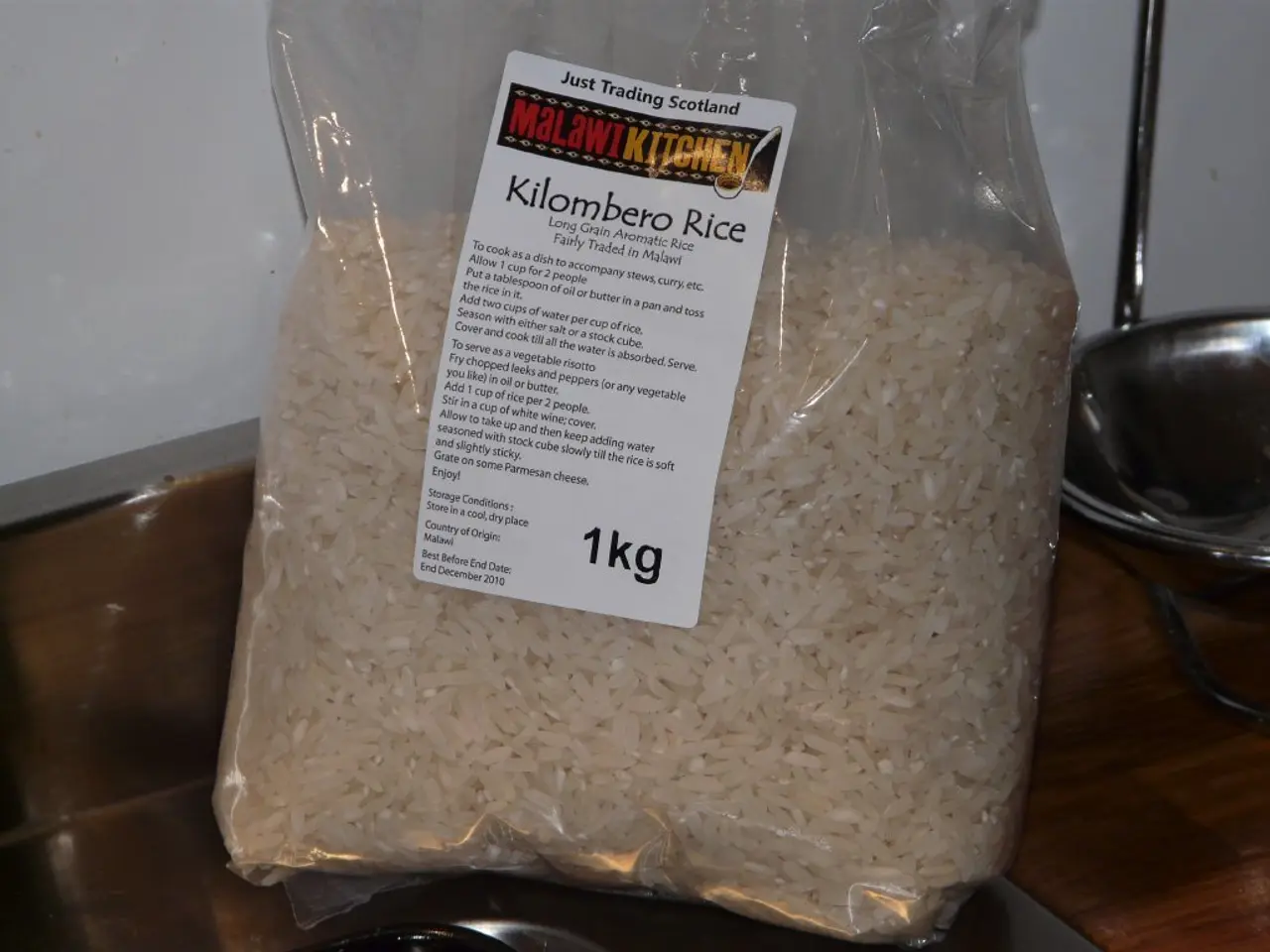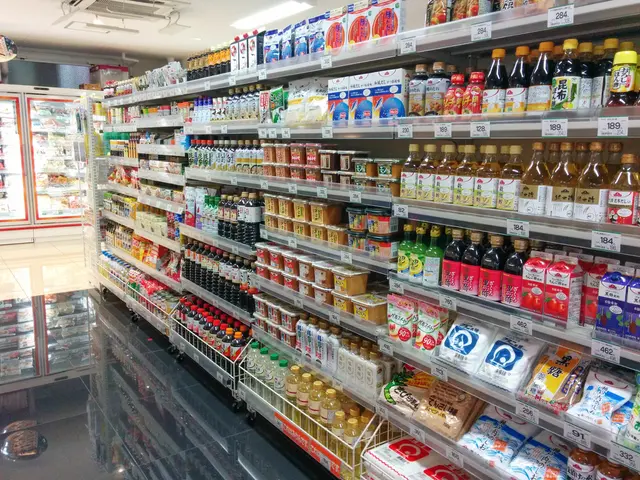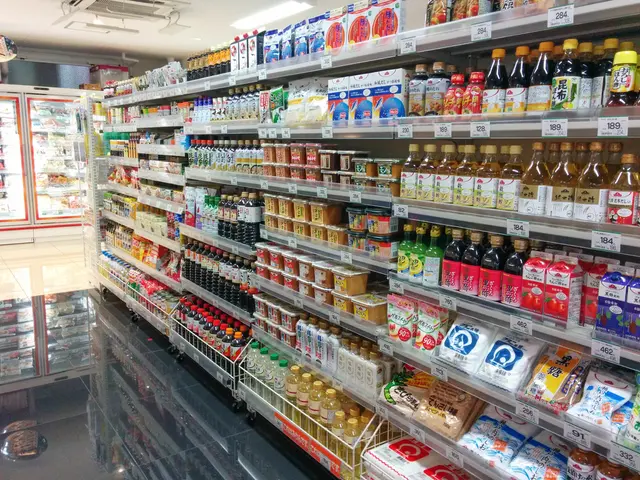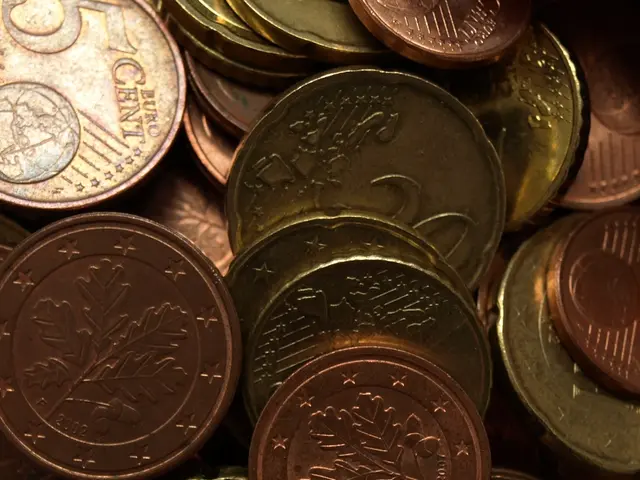Trump's Agreement on Trade with Japan
In a historic move, the United States and Japan have reached a significant trade deal, marking a new era in their economic relationship. The agreement, announced on July 24, 2025, promises to open up the Japanese market more widely to U.S. rice exports, among other goods.
President Donald Trump claimed that Japan will invest $550 billion into the US, with 90% of the profits going to the US. A key aspect of this deal is Japan's commitment to increase U.S. rice imports by 75%, addressing domestic shortages and high prices in Japan's 2024/2025 fiscal year. This represents the first opportunity since the 1990s to further enhance U.S. rice market access in Japan.
The deal also facilitates duty-free sales, improving market conditions for high-quality U.S. rice exporters, and builds on previous market access commitments under WTO agreements. The White House fact sheet states Japan will also purchase $8 billion in other U.S. agricultural goods such as corn, soybeans, fertilizer, bioethanol, and sustainable aviation fuel, but rice is specifically highlighted for expanded access.
The agreement is part of a broader strategic trade and investment framework, including expanded U.S. energy exports and aerospace sales (including 100 Boeing aircraft), and reduced tariffs on imports from Japan to the US. This comprehensive deal is expected to create hundreds of thousands of jobs in the US.
USA Rice, a major U.S. rice industry group, has publicly endorsed the deal, noting it as a "major milestone" and the first real expansion of market access since the 1990s.
However, the deal is still in the early implementation phase, and there are potential strategic concerns for Japan. President Trump might shift focus to Japan's defense spending, and Japan may need to balance its relations with China and the US carefully to avoid appearing to favor one over the other.
Interestingly, the announcement of the deal impacted Japan's benchmark Nikkei 225, which was up by 2%. Shares in major Japan automakers like Nissan, Toyota, and Honda rose due to the potential reduction in tariffs.
It's important to note that Japan is the largest foreign holder of American debt, owning over $1 trillion in Treasury securities. Japan's largest trading partner is China, and Beijing is concerned about Japan's growing alliance with the US, both bilaterally and through the QUAD.
The current status of rice trade between Japan and the US, following the recent trade deal, is that Japan has agreed to increase imports of U.S. rice by 75% with a significant expansion of import quotas, allowing for additional duty-free sales of U.S. rice.
However, there is no guarantee that Japan will import large amounts of American or California rice. The US-Japan trade deal presents a promising opportunity for U.S. rice producers, but the actual volumes of rice imported by Japan remain to be seen.
[1] The White House Fact Sheet on the US-Japan Trade Agreement. (2025, July 24). Retrieved from https://www.whitehouse.gov/briefing-room/statements-releases/2025/07/24/fact-sheet-on-the-us-japan-trade-agreement/
[2] Office of the United States Trade Representative. (2025, July 24). Statement from U.S. Trade Representative Katherine Tai on the U.S.-Japan Trade Agreement. Retrieved from https://ustr.gov/about-us/policy-offices/press-office/press-releases/2025/july/statement-us-trade-representative-katherine-tai-us-japan-trade-agreement
[3] USA Rice. (2025, July 24). USA Rice Endorses U.S.-Japan Trade Agreement. Retrieved from https://www.usarice.com/news/usa-rice-endorses-us-japan-trade-agreement/
[4] USDA Foreign Agricultural Service. (2025, July 24). U.S.-Japan Trade Agreement: Joint Statement on Agriculture. Retrieved from https://www.fas.usda.gov/international/agreements/japan/joint-statement-agriculture
- The US-Japan trade agreement promises to increase US rice imports by Japan by 75%, addressing domestic shortages and high prices.
- The agreement is expected to facilitate duty-free sales of high-quality US rice exports, benefiting US rice exporters.
- The deal is part of a broader strategic trade and investment framework that includes expanded US energy exports, aerospace sales, and reduced tariffs on imports from Japan.
- The US rice industry group, USA Rice, endorsed the agreement, calling it a "major milestone" for US rice producers.
- Despite the deal, there's no guarantee that Japan will import large amounts of American or California rice, and the actual volumes of rice imported remain to be seen.
- The agreement's impact extends beyond just trade, with potential strategic concerns for Japan regarding defense spending and balancing relations with China and the US.




